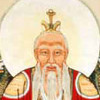“ The World Made to EnjoyWhen we grumble about the vanity of all human things, inasmuch as even the noblest works are not eternal but must become sooner or later as though they had never been, we should remember that the world, so far as we can see, was made to enjoy rather than to last. ”
Samuel Butler, The Note-Books of Samuel Butler (1912). copy citation
| Author | Samuel Butler |
|---|---|
| Source | The Note-Books of Samuel Butler |
| Topic | vanity work |
| Date | 1912 |
| Language | English |
| Reference | |
| Note | |
| Weblink | http://www.gutenberg.org/files/6173/6173-h/6173-h.htm |
Context
“There are very few workers who are not sustained by this belief, or at least hope, but it may well be doubted whether this is not a sign that they are not going to be immortal—and I am content (or try to be) to fare as my neighbours.
The World Made to Enjoy
When we grumble about the vanity of all human things, inasmuch as even the noblest works are not eternal but must become sooner or later as though they had never been, we should remember that the world, so far as we can see, was made to enjoy rather than to last. Come-and-go pervades everything of which we have knowledge, and though great things go more slowly, they are built up of small ones and must fare as that which makes them.
Are we to have our enjoyment of Handel and Shakespeare weakened because a day will come when there will be no more of either Handel or Shakespeare nor yet of ears to hear them?”
source


